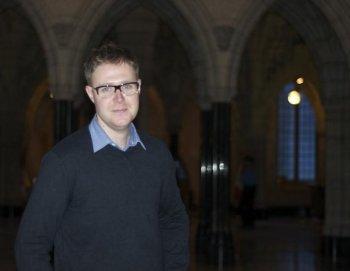Clad in a sweater over his shirt and tie, the self-described “public policy entrepreneur” just wants to open things up. But it’s not hard to imagine that could make some people a little nervous.
Eaves’ cause is about as geeky-sounding as they can get. He wants data, and he told the Access to Information, Privacy and Ethics Committee on Parliament Hill Monday that they had better give it to him—or, more accurately, everyone—or else.
“New data is like the plankton of our ecosystem, the economy, in the 21st century. So if you starve that system of plankton, or another system has more of it, they’re going to thrive more,” explained Eaves, a world-renowned expert on open government.
Data is what it sounds like—spreadsheets of numbers that computers can read. But what you can do with the data is where it gets interesting, such as uncover tax evasion, or create a mobile phone app that ties restaurant reviews with health code violations.
Democracy by the Numbers
Open data could save taxpayers money and spur innovation, says expert.

David Eaves stands inside Parliament on Monday, Jan. 31 after telling the ethics committee Canada is falling behind by not sharing more data openly. Matthew Little/The Epoch Times
|Updated:
PARLIAMENT HILL, Ottawa—David Eaves doesn’t look like a guy who wants to shake up Canada’s democracy, but some might see him that way.






